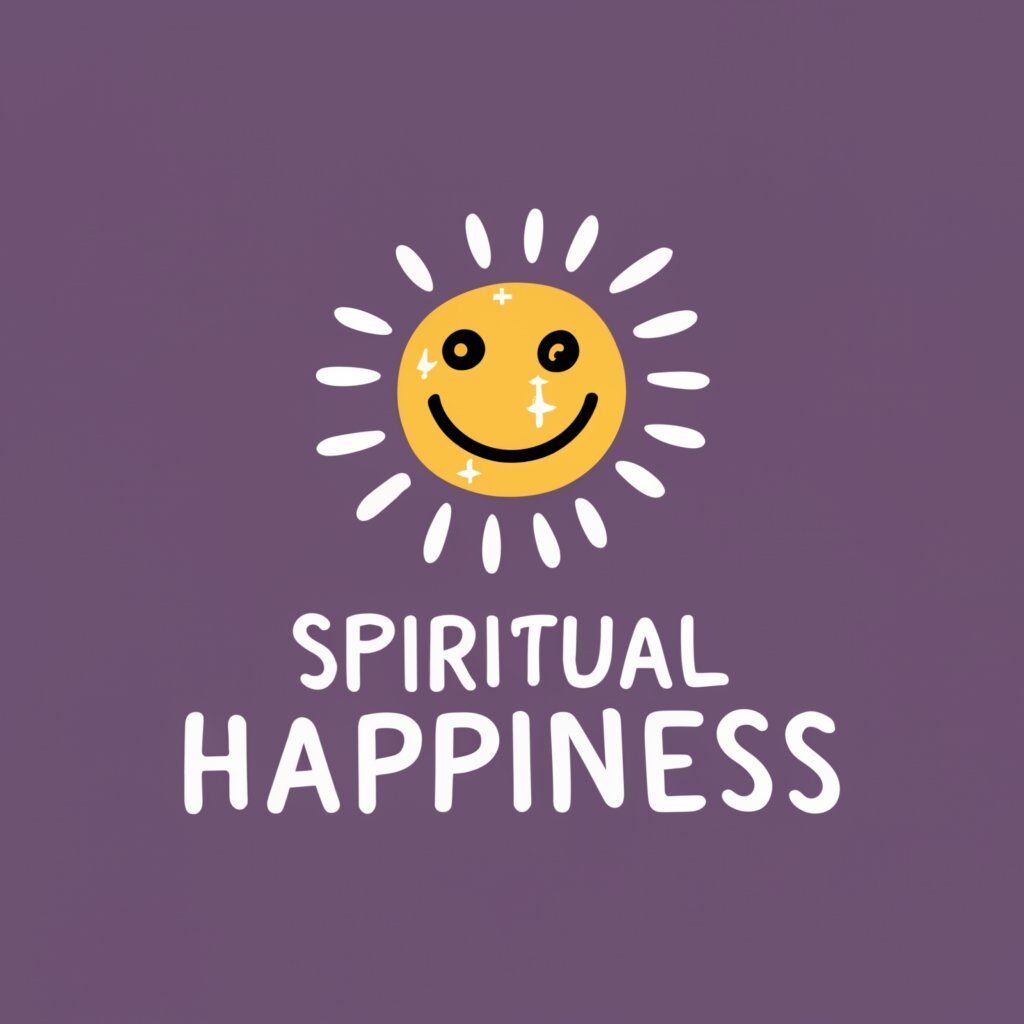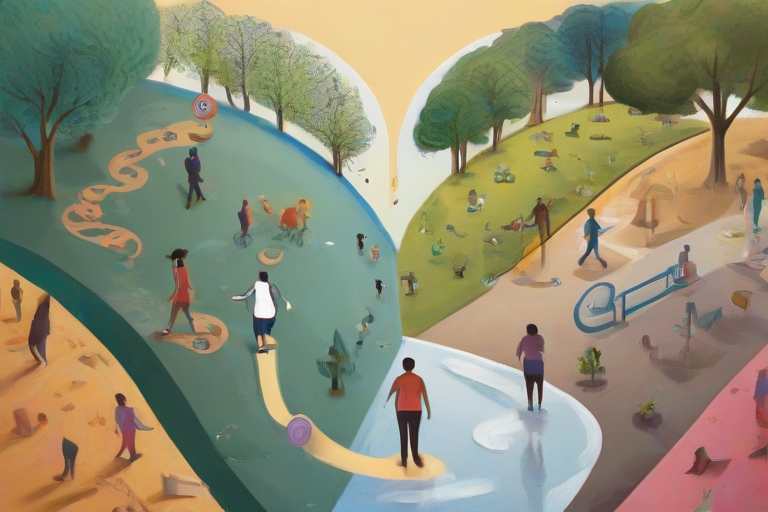What is Spirituality? A Personal Exploration
In the quest for understanding life’s deeper meaning and purpose, spirituality emerges as a profound and compelling subject. It involves the recognition of the spiritual aspect of existence, which can be cosmic or divine in nature. In this article, we embark on a personal exploration of spirituality and delve into various aspects related to it.
Unpacking the Purpose of Spirituality

Defining the Essence
Before we delve deeper, let’s define spirituality. It’s the recognition of something greater than ourselves, a force or energy that transcends the material world. This recognition often leads to a desire to explore the spiritual dimension of life.
Spiritual Channeling: An Insight
One way to explore spirituality is through spiritual channeling. This practice involves connecting with higher energies or entities to gain insights and guidance. It’s a process of receiving wisdom from the spiritual realm.
Spiritual Experience: A Journey Within
A spiritual experience is a profound event that takes us beyond the boundaries of the physical world. It’s a moment of deep connection with the divine or the cosmic, providing us with clarity and purpose.
Navigating the Significance of Spirituality

The Point of Spirituality
Many wonder about the point of spirituality. It offers a sense of purpose and fulfillment, enriching our lives beyond the material realm. It helps us make sense of life’s mysteries.
Unwrapping Spiritual Gifts
Spirituality often leads to the discovery of spiritual gifts. These unique talents or abilities are believed to be bestowed upon individuals to serve a higher purpose or contribute to the greater good.
Awakening to Spirituality
A spiritual awakening is a transformative experience that alters one’s perception of life. It often involves a profound shift in consciousness and a newfound understanding of the interconnectedness of all beings.
Personal Spirituality: A Journey Within

Defining Personal Spirituality
Personal spirituality is a unique and individualized journey. It’s about discovering your own connection with the spiritual realm and developing a personal understanding of the divine.
Embracing Spiritual Revival
Spiritual revival is a process of rejuvenation, where individuals reconnect with their spiritual selves. It can be a powerful catalyst for personal growth and transformation.
Nurturing Spiritual Growth
Spiritual growth is an ongoing process. It involves expanding your spiritual awareness, deepening your connection with the divine, and evolving as a spiritual being.
The Significance of Spirituality

Understanding the Spiritual Definition
Spirituality is a multifaceted concept with various interpretations. It’s about seeking answers to life’s fundamental questions and finding meaning beyond the material world.
The Importance of Spirituality
Spirituality plays a crucial role in our lives. It provides a sense of purpose, inner peace, and a deeper understanding of ourselves and the world around us.
Exploring Your Spirituality
For those looking to explore their spirituality, there are numerous avenues to consider. Let’s explore how you can embark on this enlightening journey.
Sharing the Essence of Spirituality

Explaining Spirituality
Explaining spirituality to others can be challenging, as it’s a deeply personal experience. However, finding common ground and using relatable examples can help convey its significance.
Communicating with Children
When explaining spirituality to a child, simplicity is key. Use age-appropriate language and stories to introduce them to the concept of something greater than themselves.
Navigating Spiritual Awakening
For those experiencing a spiritual awakening, it’s essential to seek guidance and support. It can be a profound and sometimes overwhelming journey.
Key Takeaways About Spirituality
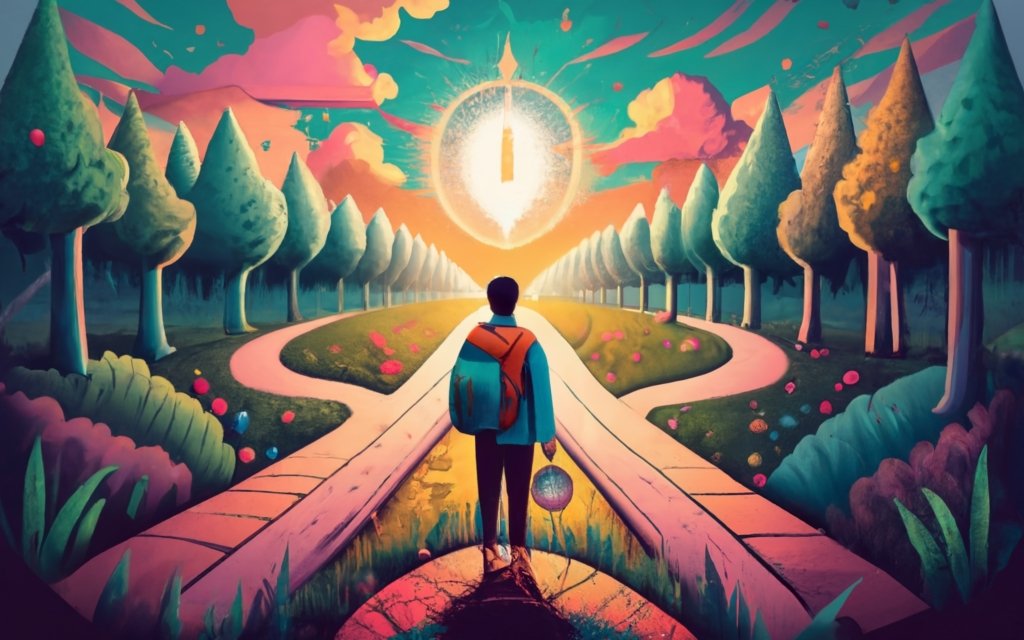
Things to Know
Before embarking on a spiritual journey, it’s crucial to understand that spirituality is a vast and diverse realm. It’s a deeply personal quest, and each individual’s experience is unique.
The Role of a Spiritual Life Coach
If you’re seeking guidance and support in your spiritual journey, consider working with a spiritual life coach. They can provide valuable insights and tools to help you navigate your path.
Embracing a Spiritual Lifestyle
A spiritual lifestyle involves integrating spiritual principles into your daily life. It’s about living with intention, compassion, and a deep sense of connection with the universe.
Mapping Your Spiritual Journey
Your spiritual journey is a unique path that unfolds over time. Embrace the unknown, trust your intuition, and allow the journey to guide you towards greater self-awareness.
Becoming a Spiritual Person
A spiritual person is someone who seeks meaning, purpose, and connection beyond the physical realm. It’s about embracing the divine within and recognizing the interconnectedness of all life.
Biblical Perspective
For those interested in spirituality from a biblical perspective, it involves aligning one’s life with the teachings and values of their faith.
Understanding Your Spiritual Self
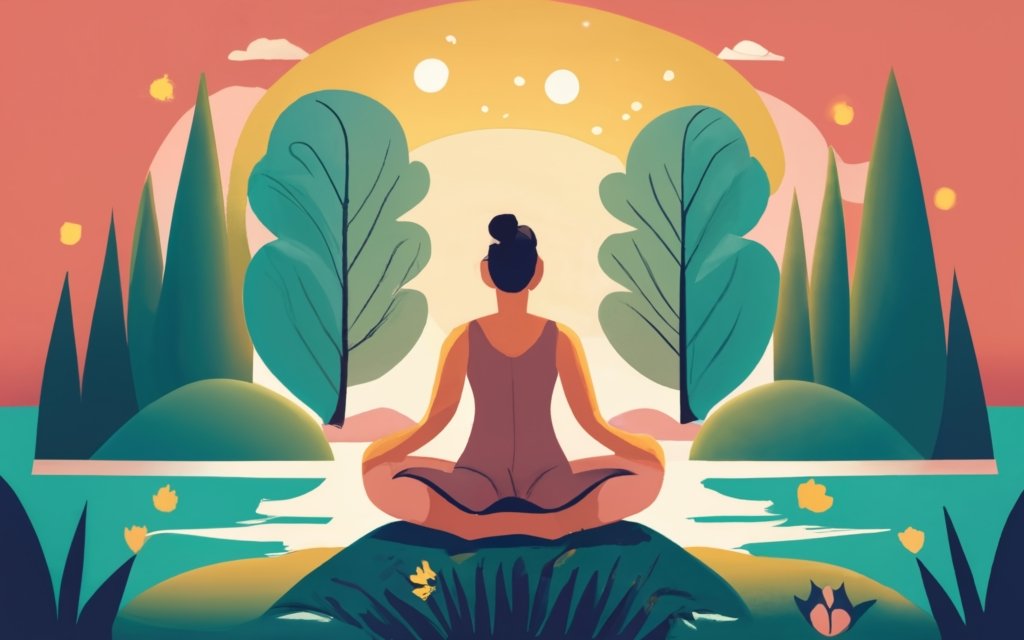
Exploring the Self
Understanding the self is a fundamental aspect of spirituality. It involves introspection, self-awareness, and a deep connection with your inner being.
Self-Care on a Spiritual Level
Spiritual self-care is about nourishing your soul. It includes practices such as meditation, mindfulness, and spending time in nature to rejuvenate your spirit.
Embracing Your Life Force
Your life force, or spiritual self, is the essence of your being. It’s the source of your vitality and inner strength. Nurturing it is vital for overall well-being.
The Meaning of Spiritual Self
Your spiritual self is the core of your existence. It’s the part of you that transcends the physical world and seeks a higher purpose and connection with the divine.
Self-Reliance on a Spiritual Level
Spiritual self-reliance is about trusting your inner wisdom and intuition. It’s the ability to make choices and decisions aligned with your spiritual values and beliefs.
Understanding the Self
In conclusion, spirituality is a deeply personal and transformative journey that leads to self-discovery, inner peace, and a greater sense of purpose. Whether you’re exploring spirituality for the first time or seeking to deepen your connection with the divine, it’s a path that can enrich your life in profound ways. Embrace the journey, and may it lead you to a deeper understanding of yourself and the world around you.
The Power of Spiritual Community
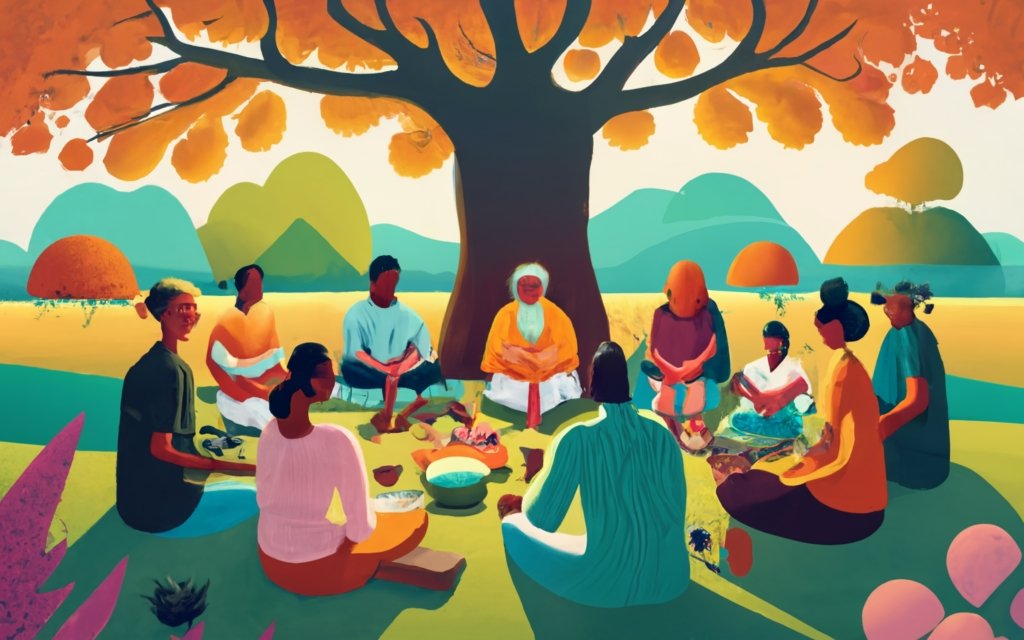
Finding Like-Minded Souls
In your pursuit of spirituality, it can be incredibly beneficial to connect with like-minded individuals. Seek out spiritual communities or groups where you can share your experiences, learn from others, and grow together on your spiritual journey.
The Benefits of Spiritual Mentorship
Having a spiritual mentor or guide can provide valuable insights and support. They can help you navigate the challenges that often arise on the spiritual path and offer guidance based on their own experiences.
Spirituality in Everyday Life

Integrating Spirituality
Spirituality isn’t confined to meditation or prayer; it can be integrated into every aspect of your life. Practice mindfulness in your daily activities, show kindness and compassion to others, and seek opportunities for personal growth.
Balancing Material and Spiritual
Finding a balance between the material and spiritual aspects of life is essential. While pursuing your spiritual path, don’t neglect your responsibilities in the material world. Strive for harmony and alignment between these two dimensions.
Spirituality and Well-Being
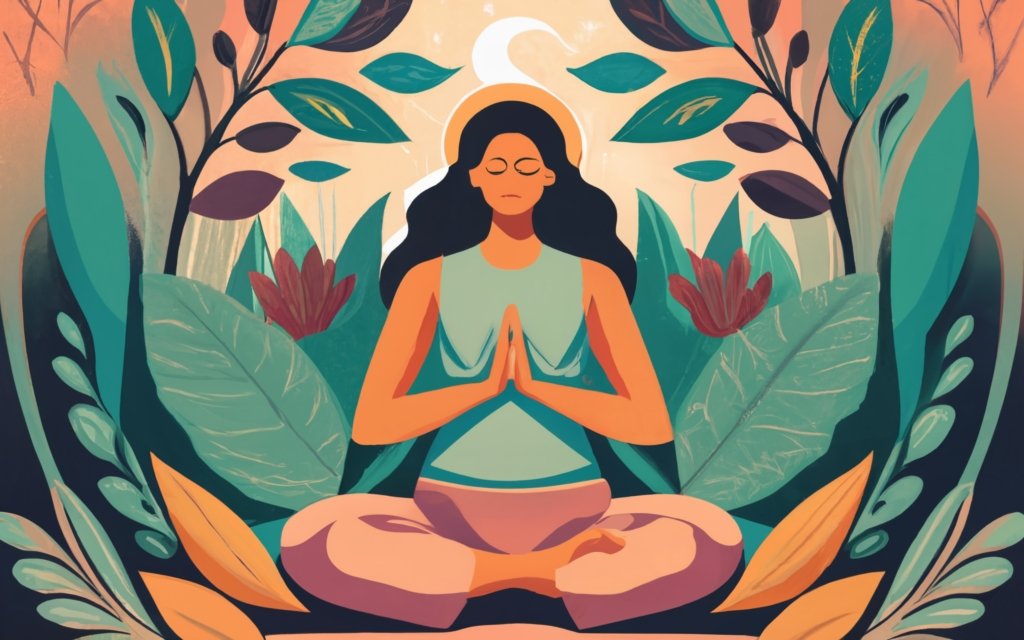
The Connection to Well-Being
Research has shown a strong connection between spirituality and overall well-being. Engaging in spiritual practices can reduce stress, increase resilience, and improve mental and emotional health.
Mind-Body-Spirit Connection
Spirituality emphasizes the interconnectedness of the mind, body, and spirit. Taking care of your physical and mental health is an integral part of your spiritual journey.
Beyond Religious Boundaries

Spirituality vs. Religion
It’s important to note that spirituality and religion are not synonymous. While religion often follows a set of organized beliefs and practices, spirituality is a personal and individualized experience. You can be spiritual without adhering to a specific religious tradition.
Embracing Diversity
Spirituality embraces diversity and inclusivity. It acknowledges that there are countless paths to the divine or the cosmic, and no one way is superior to another. Respect and honor the spiritual journeys of others.
Practical Steps to Explore Spirituality

A Guided Exploration
If you’re unsure where to begin your spiritual journey, consider these practical steps:
- Meditation and Mindfulness: Start with a daily meditation practice to quiet the mind and connect with your inner self.
- Nature Connection: Spend time in nature to feel a deeper connection with the natural world.
- Journaling: Keep a spiritual journal to reflect on your experiences and insights.
- Reading: Explore spiritual literature from various traditions to gain a broader perspective.
- Acts of Kindness: Practice acts of kindness and compassion in your daily life.
- Seek Guidance: Consider working with a spiritual coach or mentor to provide guidance and support.
The Continuous Journey

Spirituality is not a destination but a continuous journey of self-discovery and growth. It evolves with you, guiding you to deeper levels of understanding, compassion, and inner peace. Embrace this exploration with an open heart and a curious mind, and let it enrich every aspect of your life.
Conclusion
In the pursuit of understanding the purpose of spirituality, we have embarked on a personal exploration that encompasses various dimensions of this profound journey. From defining spirituality to practical steps for exploration, we’ve covered a wide range of topics. Remember that spirituality is a deeply individual experience, and there is no one-size-fits-all approach. Your journey is unique, and it’s meant to enrich your life, providing you with a sense of purpose, connection, and inner peace. Embrace the path of spirituality with an open heart, and may it lead you to profound insights and personal transformation.
Frequently Asked Questions (FAQ) about Spirituality
1. What is the Difference Between Spirituality and Religion?
Spirituality is a personal and individualized exploration of the divine or the cosmic. It often involves seeking meaning, purpose, and connection beyond the material world. Religion, on the other hand, typically follows organized beliefs, rituals, and practices within a specific tradition or faith. While they can overlap, spirituality is broader and can be practiced independently of any religion.
2. How Can I Explain Spirituality to Someone New to the Concept?
Explaining spirituality to someone new can be challenging but essential. Start by sharing that it’s a personal journey of exploring the deeper aspects of life, seeking meaning and connection. You can use relatable examples from nature, personal experiences, or literature to make it more accessible.
3. Is Spirituality the Same as Personal Growth?
Spirituality and personal growth are closely related but not identical. Spirituality often includes personal growth as a part of the journey, but it goes beyond personal development. It involves a deeper connection with the divine or cosmic, whereas personal growth may focus more on self-improvement and self-actualization.
4. What Role Does Spirituality Play in Mental Health?
Spirituality can have a significant impact on mental health. Engaging in spiritual practices like meditation, prayer, or mindfulness can reduce stress, anxiety, and depression. It can provide a sense of purpose and support resilience in challenging times.
5. Can I Be Spiritual Without Belonging to a Specific Religion?
Absolutely. Many people identify as spiritual but do not adhere to a particular religious tradition. Spirituality is inclusive and welcomes individuals from all backgrounds and beliefs. It’s about your personal connection with the spiritual dimension, regardless of religious affiliation.
6. How Can I Find a Spiritual Community?
To find a spiritual community, you can:
- Search online for local spiritual groups or organizations.
- Attend spiritual workshops, seminars, or retreats.
- Visit meditation centers or yoga studios.
- Connect with like-minded individuals through social media or online forums.
7. What Are Some Benefits of Practicing Mindfulness in My Spiritual Journey?
Mindfulness is a powerful practice in spirituality. It helps you stay present, cultivate awareness, and deepen your connection with the spiritual aspect of life. Benefits include reduced stress, improved focus, and enhanced spiritual insights.
8. Can Children Understand and Explore Spirituality?
Yes, children can explore spirituality in a child-friendly way. Share simple stories, engage in nature-based activities, and encourage their curiosity about life’s deeper questions. Keep it age-appropriate and open to their unique perspectives.
9. How Can I Maintain a Balance Between My Spiritual Path and My Daily Responsibilities?
Balancing spirituality with daily responsibilities is essential. Create a daily routine that includes spiritual practices like meditation or prayer. Integrate mindfulness into your daily activities, and set clear boundaries to manage your time effectively.
10. Is There a Universal Purpose to Spirituality?
The purpose of spirituality can vary from person to person. Some seek inner peace and self-discovery, while others aim for a deeper connection with the divine. Ultimately, the universal purpose of spirituality may be to bring meaning, purpose, and fulfillment to life, transcending the material world.
Continuing Your Spiritual Journey
As you navigate your unique path of spirituality, remember that there are no right or wrong answers. Your journey is a personal exploration of the profound and mysterious aspects of life. Continue to seek, learn, grow, and connect with others on similar journeys. May your spiritual exploration bring you ever closer to a deeper understanding of yourself and the universe.
